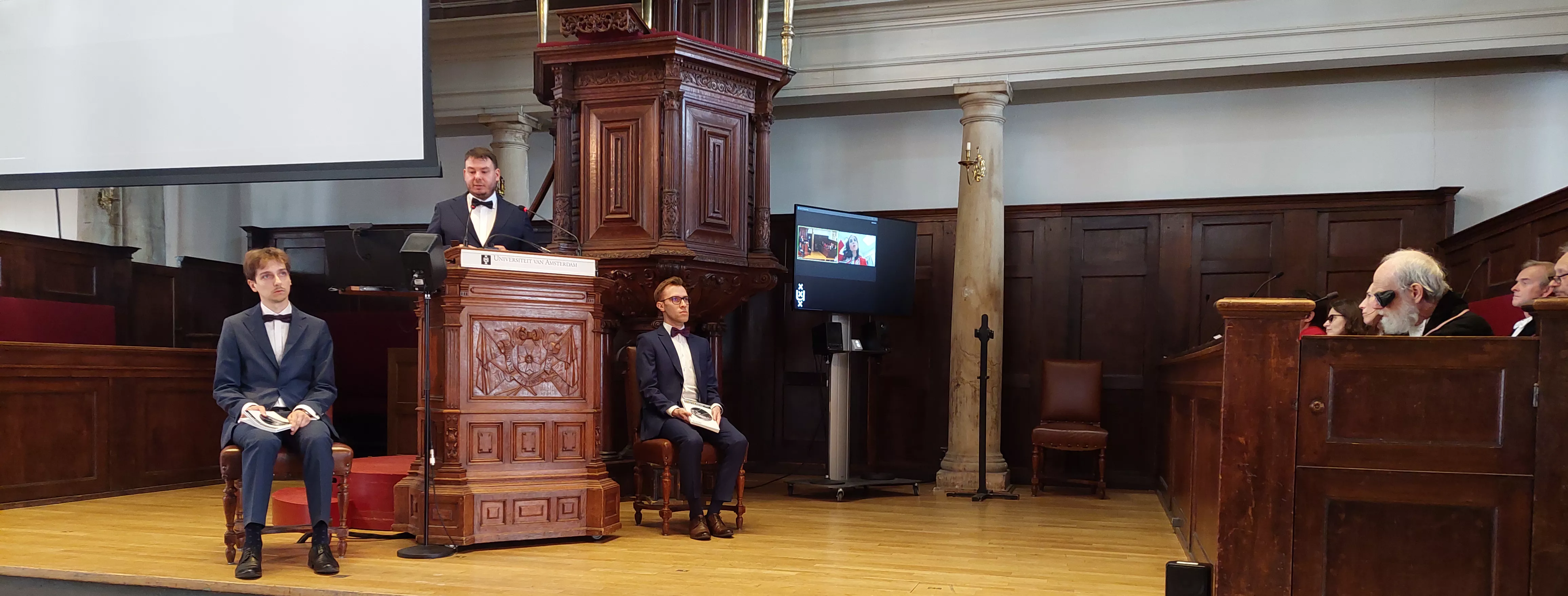

The Dutch PhD Defence: A Blend of Ceremony, Support, and Academic Rigor
The PhD defense in the Netherlands significantly differs from doctoral defenses in other countries due to its ceremonial approach and rich traditions. Szymon Płotka, who defended his doctoral thesis at the University of Amsterdam, shares his experiences from this extraordinary event and elaborates on the unique features of the Dutch PhD defense, highlighting details that emphasize its distinct character.
Unique Characteristics of the Dutch PhD Defence
1. distinctive defence style and venue.
At the University of Amsterdam, where I studied, the defence takes place in two iconic historical locations: the Old Lutheran Church (Oude Lutherse Kerk) and the Agnietenkapel. Both venues are situated in the picturesque heart of old Amsterdam, adding a layer of historical and cultural significance to the ceremony. I had the privilege of holding my defence in the Old Lutheran Church.
2. Ceremonial Nature
Unlike in many other countries, the PhD defence in the Netherlands is not an examination where you receive a grade post-defence. Instead, it is a formal ceremony celebrating the culmination of years of hard work. However, the Candidate must answer a few questions from each of the Committee Members. The ceremony is designed for the Candidate, their family, friends, and academic peers to witness this significant milestone. During the ceremony, all participants, including the supervisors, committee members, and the chair, don academic gowns, emphasizing the formality and tradition of the event.
3. Role of the Beadle (Pedel)
One of the intriguing aspects of the Dutch PhD defence is the role of the Beadle (or Pedel in Dutch). The Beadle acts as the master of ceremonies. In my case, the Beadle was a woman named Kitty Jonker, who provided invaluable support by preparing me mentally before the ceremony. She also orchestrated the entrance and seating of the supervisors, committee members, and the chair, ensuring everything proceeded smoothly and with due decorum.
4. Paranymphs: The Candidate’s Support
The Candidate is accompanied by two paranymphs, akin to attendants or supporters. Historically, paranymphs were expected to answer questions on behalf of the Candidate, although this practice is rarely observed today. The paranymphs’ role is symbolic, similar to that of witnesses at a wedding, providing moral and logistical support throughout the defence. In my case, I had two colleagues and co-authors from Sano: Michał Grzeszczyk and Tomasz Szczepański .
5. Structure and Timing of the Ceremony
The Dutch PhD defence ceremony is concise and meticulously timed. It begins precisely on the hour with the Candidate delivering a short presentation (approximately 10 minutes) outlining the key achievements and contributions of their PhD research. Following this, the Beadle leads the academic procession to their designated seats. The Candidate then reads a formal statement before fielding questions from the committee members. This questioning period lasts exactly 45 minutes. The conclusion of the question session is signaled by the Beadle’s return and the pronouncement of “Hora est!” (“The hour has come!”), marking the end of this segment.
6. Diploma Presentation
Once the defence is officially completed and the Candidate has successfully answered all questions, they are awarded their doctoral diploma. This typically occurs in a separate, more informal setting following the ceremony. The diploma is presented to the Candidate by one of the university officials or supervisors, symbolizing the official conferment of the doctoral degree. This moment marks the culmination of years of rigorous research and study, and it is a proud and emotional moment for the new PhD graduate. In my case, I received my PhD diploma from Prof. Dr. Ivana Išgum, one of my supervisors.
7. Reception
Following the diploma presentation, a reception is usually held to celebrate the Candidate’s achievement. This reception is often organized in a designated area such as a university hall, a nearby venue, or a social space. It provides an opportunity for the Candidate to mingle with family, friends, colleagues, and academic peers. The reception typically features refreshments, and it offers a chance for informal conversations, congratulations, and reflections on the journey that led to this significant accomplishment.
The reception serves as both a celebration of the Candidate’s success and a social occasion where attendees can express their support and share in the joy of the achievement. It’s a fitting end to a day that honors the dedication and hard work involved in earning a PhD.
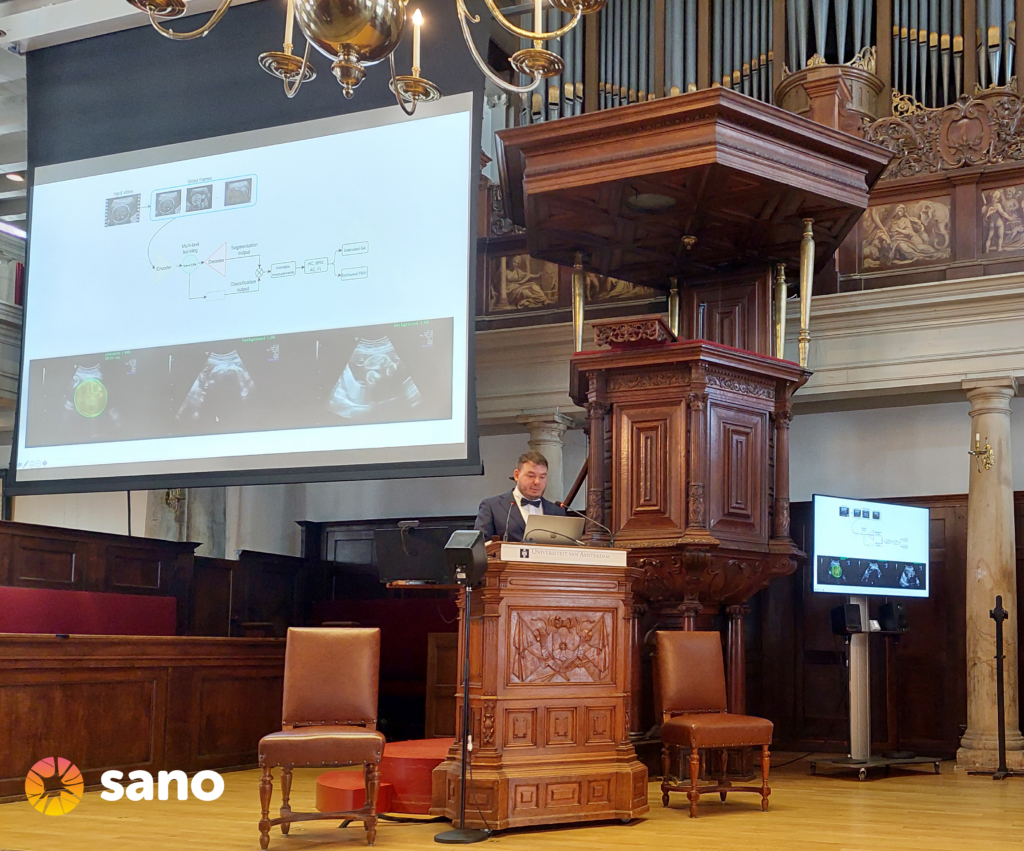
The PhD defense ceremony can be viewed on the website of the University of Amsterdam www.uva.nl
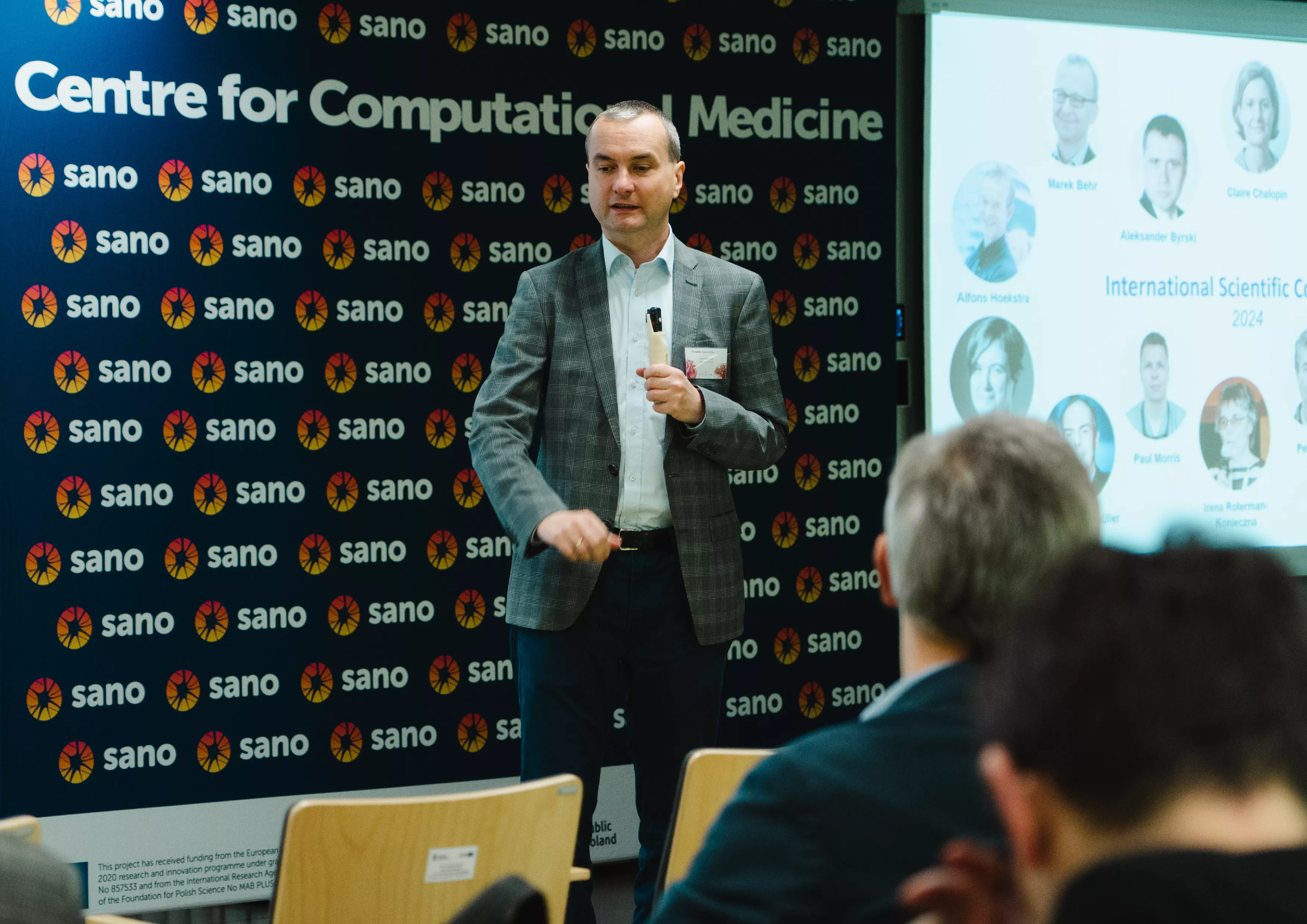
December 16, 2024
Sano Science Day Raport
On November 27th, 2024, the Sano Centre for Computational Medicine marked its 5th anniversary with a special e…
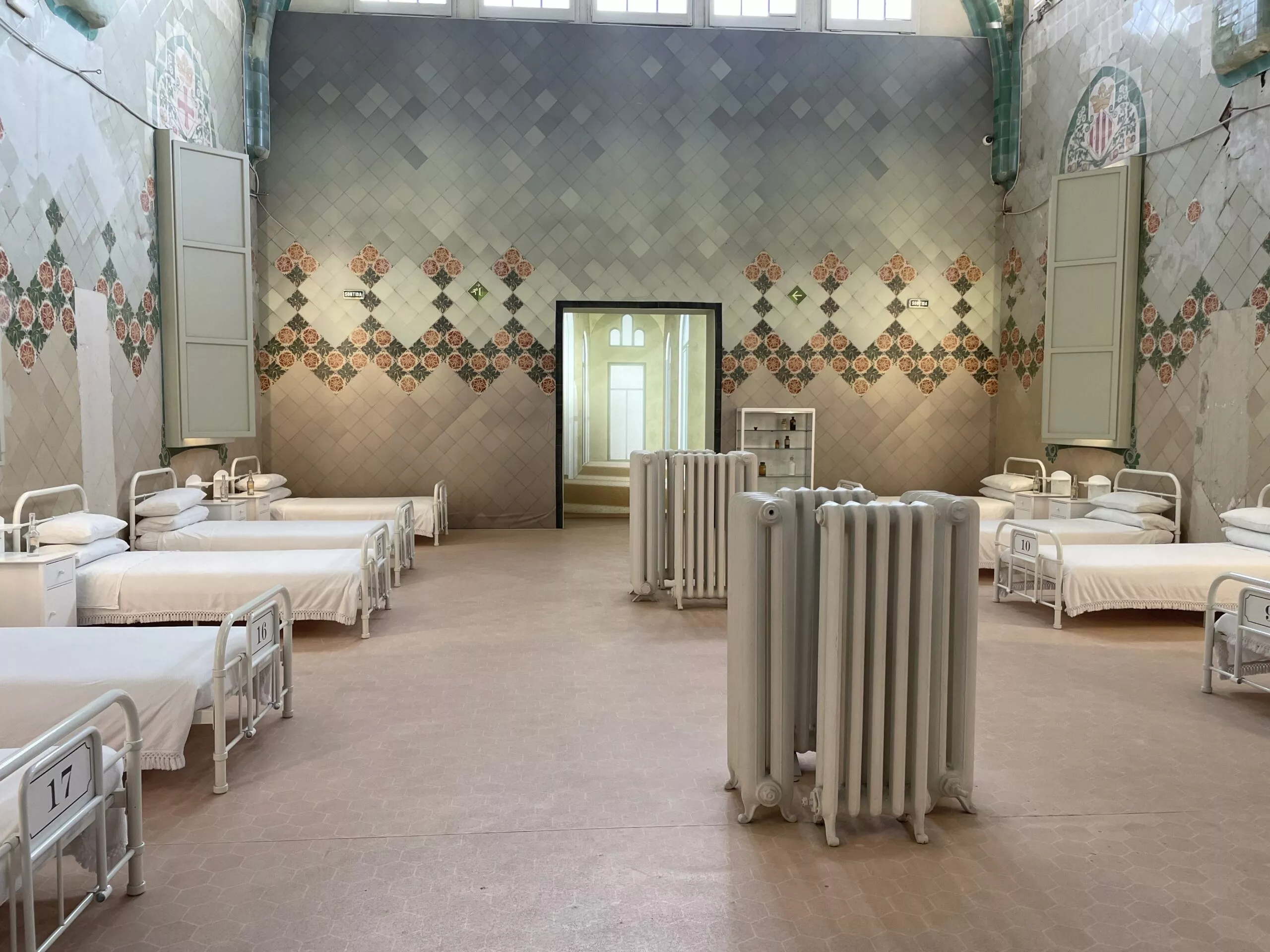
December 12, 2024
Exploring Innovations in Health Communication: Sano at the 1st International Congress in Barcelona
Explore key takeaways from the 1st Health Communication Congress in Barcelona and a visit to the iconic Sant P…
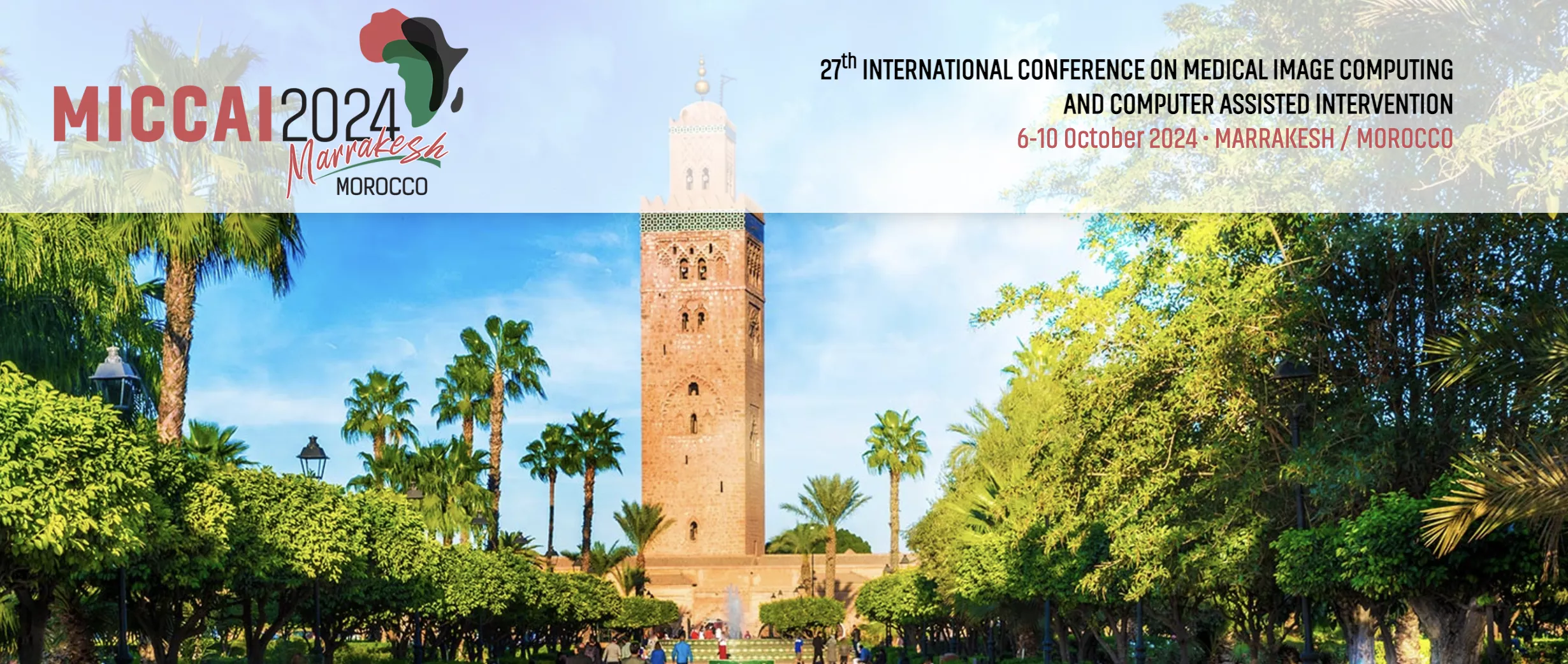
December 9, 2024
Sano Scientists at MICCAI 2024
- X (Twitter)

The Dutch PhD defence is a ceremony, not an examination
In the Netherlands, PhD candidates defend their dissertations during a traditional public ceremony. Although the event’s festive character should be valued, PhD candidates need to be exposed to more public criticism, according to some foreign professors at TU Delft.
/strong>
‘Frightening and thoroughly intimidating,’ is how Professor Marisa Carmona, born and raised in Chili, describes her PhD examination. She vividly remembers her dissertation defence in 1993, as a formal occasion dominated by the traditionally dressed examination committee. Carmona, who works at the faculty of Architecture, found it frustrating to have to explain so many ‘irrelevant’ issues, but believes her dissatisfaction is not unusual: ‘Many of my colleagues refuse to discuss their PhD exams’.
Carmona’s PhD defence took place in Delft and, besides being in English, was very much a typical Dutch ceremony. Family, friends and colleagues had gathered in one of the Aula’s formal halls and saw the pedel (master of ceremony) lead the defence committee into the room. After an hour of questions and answers, chaired by the rector magnificus, the pedel announced ‘hora est’ and the procession % rector, advisor and four other committee members % retreated for private consultation.
Nervously awaiting their return, Carmona certainly looked the part, wearing a beautiful old hat and a robe she’d made especially for the occasion. Approximately fifteen minutes later she was told she had passed and immediately received her certificate. The official ceremony was followed by a cup of coffee and immense relief.
Bill Melody, professor at the Faculty of Technology, Policy and Management, believes the Dutch Ph.D. defence is ‘a ceremony, not an examination’ and this ‘demonstration of competence’ does not measure up to the ordeal North American students must endure. In the U.S.A. and his native Canada, a defence is a public event that takes place in a seminar room or lecture hall, where, following a thirty-minute introduction, members of the exam committee, colleagues and friends are invited to ask questions. This ‘public’ defence, however, is followed by a private defence behind closed doors, when examiners air their detailed criticisms of the dissertation during a rigorous examination, which can last anywhere from an hour to a day.
An ‘unblemished’ pass is rare; usually a candidate passes subject to certain revisions. In the worst case, a candidate must schedule a second defence, which is unthinkable in the Netherlands, where candidates probably wouldn’t even fail ‘if they were dumbstruck’. Moreover, the questions that will be asked are sometimes even given to the students in advance.
Melody would be ‘mortally embarrassed’ if one of his North American students needed a second defence, because ‘to be allowed to defend is the most important quality criterion. A bad dissertation reflects very badly on the student’s supervisor’.
Once a student has made the necessary changes and collected the relevant signatures, officially passing a North American PhD exam is, in terms of pomp and ceremony, a non-event. However, the yearly formal graduation ceremony compensates for the lack of festivities surrounding the PhD defence. Thousands of students graduate during this ceremony. Wearing ceremonial gowns, PhD graduates are called up on stage to accept their degrees. Melody: ‘The Dutch ceremony is definitely more personal’ the combination of ceremony and examination is a reflection of the different philosophies.’
Professor Paddy French decided to apply for a PhD course at Southampton University because, as a MSc in Electronics, his best career prospects were in the bomb building industry, which didn’t appeal to him. Half way through his PhD course, he had to defend a mini-thesis, which was given by his supervisor and one internaldepartment examiner. However, this examiner was not supposed to know the candidate too well, but in French’s case, they were well acquainted: ‘Before the defence he said to me, ‘for what I’m about to do’ please don’t take it personally”. The mini-defence lasted one hour and was extremely tough, but his internal examiner was pleased, explaining that the real defence couldn’t possibly be more difficult.
French’s final defence was a private occasion lacking all ceremony and merely involving three examiners, who asked ‘very reasonable’ questions for one hour. French celebrated by buying his friends Guinness at the local pub.
Graduation ceremonies in the UK are similar to those in the United States. French smiles as he recalls wearing a suit and a fancy blue and purple toga, despite the hot June sunshine and his reputation as a ‘scruffy sod’ who loathed pompous display: ‘Like the other PhD graduates, I was invited on the stage to have the vice-chancellor wrap his hands around mine’. His certificate arrived in the post a few days later.
According to Professor Giampiero Berrogi, from Italy, who works at the Faculty of Technology, Policy and Management, other European PhD defences are similar, although Dutch examination committees are larger. Swiss and German committees are usually comprised of one promoter and one or two additional readers, and the process isn’t as ceremonious.
Berrogi believes that the best aspects of the European and US systems should be combined: ‘Somewhere in the defence process here, more scholarly challenges are needed’. The PhD candidate should be exposed to more public criticism, but the event shouldn’t lose its festive character. Melody shares this view, but advises students to ‘decide on your subject first, find out who the experts in the field are, and then select a university that links you to the pioneers at the frontier.’ PhD defence systems vary throughout the world, but they should never influence a PhD candidate’s choice of institution.
Do you have a question or comment about this article?
New research: technical university students get the best paid internships
Opposition and cabinet make agreement, budget cuts remain largely intact, open interactive book ‘show the physics’ is a gift to teachers and students.
Comments are closed.
- Student life
Type above and press Enter to search. Press Esc to cancel.
- For candidates
- For employers
- For members
- English (EN)
- Nederlands (NL)
Defending your PhD in the Netherlands
As I write this post, it's been more than seven years since I defended my PhD. Since then, I've developed a particular interest in everything related to the PhD defense. On my blog PhD Talk, I run a series of guest posts "PhD Defenses around the World", in which I gather testimonies from people who have defended their PhD in different countries, different fields, and different universities.
If I recall the origins of the beginning of this series well, it was after comparing a colleague's defense in the Netherlands , my husband's defense in the US and my defense in the Netherlands in blog posts that Veronika mentioned some oddities in Scandinavia related to the defense (and how new doctors are celebrated) and suggested I start compiling testimonies from PhD defenses.
As I read more testimonies about PhD defenses, I became more and more fascinated by the topic. A defense brings together your academic knowledge, strong emotions (you worked for many years on your research), as well as human interaction in a stressful setting. As I was finishing up the two-volume book set on load testing of bridges, I received an email from Helen Kara to see if I would be interested in writing a book about the PhD defense together with a coauthor for a series of books for PhD students on Routledge. I teamed up with Olga Degtyareva to delve even deeper into the topic of the defense, which included plowing through the scientific literature on the topic as well as analyzing the guest posts on my blog. Through all this reading, I started to wonder if there is a link between the defense format and the perception of the doctoral student of the defense - so I started to actively research this topic. I'm in the thick of this research and hope to share my results in a preprint sooner rather than later.
With this background information, I am confident I can answer the question about what it is like to defend your PhD in the Netherlands, and how this practice differs from other countries. Here are a few important things to know about the defense in the Netherlands:
1. You defend your thesis and propositions
Not many countries require that the PhD defense includes the defense of propositions. Propositions are statements from your research, your field, and society in general which you should be able to argue in favor of during your defense. So, if you prepare for your thesis defense, don't forget to prepare for defending your propositions.
2. The defense is very formal
Caps and gowns. A beadle who is in charge of following the protocol. Old-fashioned ways of addressing the committee members in Dutch (even though you or your committee members do not speak Dutch). The Dutch defense follows some elements that have not changed over a long period of time - so it feels like a very formal event.
3. The defense is a mere formality
At the same time, the Dutch defense is just a formality. You can't fail your defense, and your thesis is already accepted, printed, and distributed. It's a day of celebration of your achievement, yet not without getting examined in depth by your committee.
4. You will be anxious before your defense
Even though you know you virtually can't fail, you will still be nervous. You will be put under pressure to answer hard questions by some of the most knowledgeable people in your field, on a topic in which you poured your heart and soul for the last three to ten years. It's normal to be nervous, stressed, and/or anxious before your defense.

5. The defense is fully public
Your friends, family, and colleagues all get to attend your defense! The good news is that you get to celebrate together with your loved ones. The bad news is that their presence may add an extra layer of stress and insecurity, since you don't want to "fail" in front of them. Failing here would mean to appear nervous, not being able to properly answer a question, or otherwise perform at less than your best.
6. You graduate on the day of your defense
At the very end of the defense, you walk away with a large red tube which holds your PhD thesis (including a giant wax seal). There's nothing left to do after your defense but celebrate. In other countries, you may need to wait months after your defense to go through commencement, but in the Netherlands, it all happens on the same day.
Recent blog posts
6 cutting-edge tools and methods for phd researchers - part 2, ideas for valorization of your research, 6 cutting-edge tools and methods for phd researchers - part 1, modernizing our teaching tools, external phd: follow your drive, modernizing education, how to start volunteering during your phd, how to discuss ai tools with students and researchers, opportunities and challenges with chatgpt in education, opportunities and challenges with chatgpt in research.
PhD defence ceremonies

These website pages are intended to familiarise PhD candidates with everything they need to know about defending their PhD thesis at Erasmus University Rotterdam.
You will find information about the admission requirements, the PhD defence procedure, the thesis, preparations for the defence ceremony and the day of the PhD defence. If you have any questions you can contact the Beadle’s Office.
Are you not a PhD candidate yet, but considering to pursue a PhD at Erasmus University Rotterdam? Read more about our vacancies and facilities for PhD students .
Contact Beadle's Office
Visiting address: Woudestein - room A1-05 (near the Senaatszaal)
Route and directions
Visiting times: Monday through Friday between 9.30 hrs and 13.00 hrs (or by appointment).
Hora Finita
For promovendi at Erasmus University Rotterdam and Erasmus MC
Share this page
Compare @count study programme.
- Duration: @duration
- Nederlands NL
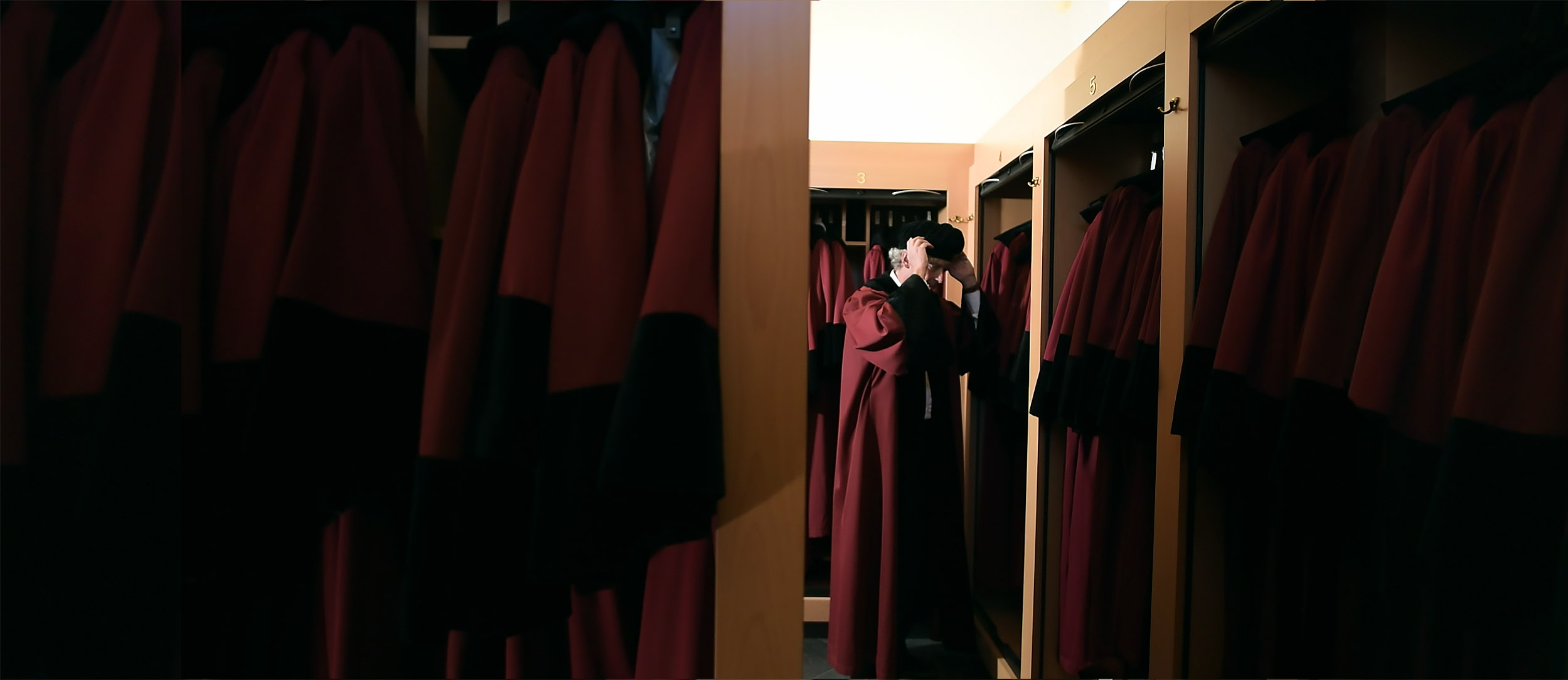
Whether you are commencing your PhD journey or reaching its culmination, the PhD Office, a division of Academic Affairs, serves as your primary point of contact. We maintain a comprehensive record of all your documentation and stand ready to assist with any organisational inquiries throughout your academic pursuit. When you are preparing for your public defence we are your initial point of contact. We offer guidance on all essential paperwork, facilitate communication with your supervisors and promoter, coordinate the logistics of the event (whether online or in-person), and provide dedicated support, allowing you to concentrate on your defence.
We are a small team of six people located at the Minderbroedersberg. You are always welcome to visit us or contact us via e-mail. Within these pages, you will find comprehensive guidance on the practical matters that need attention both before and during your doctoral research. We also provide detailed instructions on the process of preparing for your PhD defence.
More information on PhD defence ceremonies Overview of upcoming PhD defences FAQ and Support for PhD Candidates
The PhD defence
The PhD defence is a formal occasion characterised by strict protocols dictating the roles, responsibilities, and language used by each participant. It bears a resemblance to a trial, hence the term 'PhD defence'. The ceremony begins with the gathering of the degree committee members presided over by the pro-rector. The pro-rector chairs the ceremony and ensures the protocol is followed.
The defence team comprises the candidate's supervisor and co-supervisor, both of whom have guided the candidate through the project and granted approval for an official PhD defence. Opposite them sit experts in the candidate’s field of research who assume the role of critical examiners, posing questions to assess the candidate's preparedness for a PhD.
The structure of the ceremony unfolds as follows: The candidate delivers a 15-minute presentation, followed by a 45-minute period during which the opposition questions the candidate. Subsequently, the degree committee members adjourn for a confidential evaluation of the defence.
Please consult the Model Letters on the Support for PhD Candidates page for more information on how to apply for you defence.
Upcoming PhD defences
More information.
Below you will find additional information such as frequently asked questions and practical information.
This FAQ includes the most frequently asked questions PhD candidates may have. We try to answer these as best as possible.
Support for PhD Candidates
Here, you will find practical information such as regulations and other documents about obtaining a PhD at Maastricht University.
- Announcements
- Research funding
Defence ceremony
When you have finished your dissertation, it is time to prepare for the defence procedure.
You and your supervisor need to take several steps in LUCRIS GSM before the ceremony. Manuals and instructions can be found here . For more information and questions about the preparation for the PhD defence, please contact the secretariat of your institute .
Read more about practical matters concerning the defence ceremony.
A PhD defence is always both an official and a festive occasion. Leiden University has two locations where defences can be held: the Great Auditorium and the Senate Room.
The Great Auditorium is the most suitable location for a large audience. The Senate Room is a more intimate venue. In the videos below an explanation is given about the guidelines and procedures in both rooms, to give you an idea of how the defence ceremony at Leiden University goes.
PhD Defence in the Great Auditorium
Due to the selected cookie settings, we cannot show this video here.
PhD Defense in the Senate Room
Human resources.
- Working hours
- Business travel
- CAO and regulations
- Individual Choices Model
- Terms of employment in short
- Registration and contract
- Practical issues
- International staff
- University doctor
- Working with a functional limitation
- Mental fitness
- Work pressure
- Leiden Healthy University
- Self Service
- Confidential counsellors and complaints committees
- Service Point Personnel
- Service Centre International Staff
- Immigration and formalities
- Social life and settling in
- Taxes and social security
- Getting around
- Frequently asked questions
- Career guidance and mobility
- Teacher development
- PhD candidates and postdocs
- Code of conduct
- Recruitment and selection
- Diversity and inclusiveness
- Continuing education rules and regulations
- Confidential counsellors
- Staff ombuds officer
- Complaints committees
- Collective insurances
- Unfit for work
- Unemployment
Finance & Procurement
- Expense claims
- Other allowances
- Invoice payments
- Sales invoices, credit notes and receiving payments
- Payments without an invoice (by bank transfer, VVV gift card or cash), taxable remuneration (IB47)
- Payments to research participants
- Conferences and seminars
- Framework contracts
- Procurement procedures
- Service portal
- Research equipment
- Real estate
- University finances
- Financial planning and control cycles
- Regulations and guidelines
- Working for third parties
- Financial project management
- Department Financial Economic Affairs
- Service Point Finance
- Controllers
- University Procurement
- Audit department
- Synchronising mail and calendar
- Printing and copying
- Software and online tools
- Forgotten your password
- Activating and managing your account
- Additional authentication
- Applying for a guest/external account
- Office 365 and OneDrive
- Microsoft Teams
- Remote workspace
- Secure online workspace from home
- Application forms
- Helpdesks and contact
- Maintenance and incidents
- Research data
- IT and education > go to Education
- General Data Protection Regulation (GDPR)
- Archive management
- Personal data
- Working securely online
Buildings & Facilities
- Workplace in the office
- Reserving workstations
- Requesting facilities for working from home
- Laboratories
- Environmental awareness at work
- Post and Transport
- Breastfeeding and quiet rooms
- Reserving rooms
- Service desks and receptions
- Management and maintenance
- Floor plans and house rules
- Construction projects
- Ordering catering
- Faculty Club
- Restaurants and bars
- Vending machines
- Event locations
- Reporting unsafe situations
- ERO coordinators
- Health and safety coordinators
- Servicedesk and receptions
- Blended learning
- AI in education
- Digital tools
- Tools for interactive learning
- Lecture halls and computer rooms
- Evaluation of education
- The Programme Committee
- Board of Examiners
- Site visits and accreditation
- Vision on education
- Integrity and fraud
- Student success
- Degree programmes
- Educational support units
- ICT and education
- Library and education
- Internationalisation in education
- Accessible Education
- Tests and theses
- Giving a presentation
- Remote teaching
- Reserving equipment
- Referral options
- Unacceptable behaviour
- Training and workshops for staff
- Training and workshops for students
- Online self-help for students
- Bringing students together
- Background information on student well-being
- Comenius programme
- Teacher's Academy
- Contact about internationalisation
- Arrange partnership and exchange
- Sign up student and staff
- Safety abroad and crisis management
- Preparing for a trip: visa and Europass
- Academic calendar
- Course and Examination Regulations
- Finalisation and PhD defence ceremony
- Support and community
- Becoming a postdoc
- Collaborating with renowned researchers
- Training programmes, coaching and career guidance
- Practical support for internationals
- Confidential advisers, health & safety
- Research programme data science
- Collaboration Leiden-Delft-Erasmus
- Research internationalisation
- Find and prepare
- Prepare and write
- Grant awarded
- Research Support Portal
- Research Support Network
- Data storage
- Datamanagement
- Research software
- Sharing and sending files
- Publication tools
- Research from home
- Roadmap and examples
- Research visitations
- Academic integrity
- Ethics committees
- Publishing your doctoral dissertation
- Scholarly Publications and LUCRIS
- Open Access
- ORCID iD and DOI
- Leiden University Press
Communications & marketing
- Communication tools
- Media relations
- Science communication
- Bachelor recruitement
- Master recruitment
- Recruitment international students
- Alumni relations
- Alumni database
- House style
- Writing and translating
- Use of images
- Making a presentation
- Website and web editorial team
- Online profile page
- Social Media
- Conferences and Events
- Working securely: tips
- Privacy and security policy documents
- Learning platform
- Incidents and dangerous situations
- Safety in a lab
- Working with hazardous substances
- Emergency Response Officer
- Risk Inventory and Evaluation
- Camera surveillance
Select a different organisation
- All categories

Graduate School of Science
Defence Ceremony
When after four years or more, you have finished your dissertation, it is time to prepare for the defence procedure.
You and your supervisor need to take several steps in LUCRIS GSM before the ceremony. Information about practical matters concerning the defence ceremony can be found here .
For more information and questions about the preparation for the PhD defence, please contact the Graduate School Office .

IMAGES
COMMENTS
The PhD defense in the Netherlands significantly differs from doctoral defenses in other countries due to its ceremonial approach and rich traditions. Szymon Płotka, who defended his doctoral thesis at the University of Amsterdam, shares his experiences from this extraordinary event and elaborates on the unique features of the Dutch PhD ...
Mar 29, 2000 · In the Netherlands, PhD candidates defend their dissertations during a traditional public ceremony. Although the event's festive character should be valued, PhD candidates need to be exposed to more public criticism, according to some foreign professors at TU Delft.
At the very end of the defense, you walk away with a large red tube which holds your PhD thesis (including a giant wax seal). There's nothing left to do after your defense but celebrate. In other countries, you may need to wait months after your defense to go through commencement, but in the Netherlands, it all happens on the same day.
Sep 11, 2024 · The Dean informs the supervisor, the Beadle, the Doctorate Board and you, as the PhD candidate, whether you will be admitted to the PhD defence. For PhD candidates who started after 1 January 2024, this will include checking that they have completed a training plan. Scheduling the PhD defence
PhD defence ceremony. The Beadle will pick you and your paranymphs up and escort you to the hall. There you will wait until the doctoral committee takes its seat. As soon as the doors close, the Chairman opens the ceremony and invites you to give an introduction.
These website pages are intended to familiarise PhD candidates with everything they need to know about defending their PhD thesis at Erasmus University Rotterdam. You will find information about the admission requirements, the PhD defence procedure, the thesis, preparations for the defence ceremony and the day of the PhD defence.
Mar 12, 2021 · The PhD candidate conforms to the judgment of the beadle; Laudatio. Due to the tight schedule of the ceremonies, a laudatio by the (co)supervisor of max. 4 minutes is allowed. Please find current policy on defence ceremonies on the VU-website; links below. Invitation: Workshop 'Finishing my PhD trajectory'
The PhD defence is a formal occasion characterised by strict protocols dictating the roles, responsibilities, and language used by each participant. It bears a resemblance to a trial, hence the term 'PhD defence'. The ceremony begins with the gathering of the degree committee members presided over by the pro-rector.
A PhD defence is always both an official and a festive occasion. Leiden University has two locations where defences can be held: the Great Auditorium and the Senate Room. The Great Auditorium is the most suitable location for a large audience. The Senate Room is a more intimate venue.
Defence Ceremony. When after four years or more, you have finished your dissertation, it is time to prepare for the defence procedure. You and your supervisor need to take several steps in LUCRIS GSM before the ceremony. Information about practical matters concerning the defence ceremony can be found here.